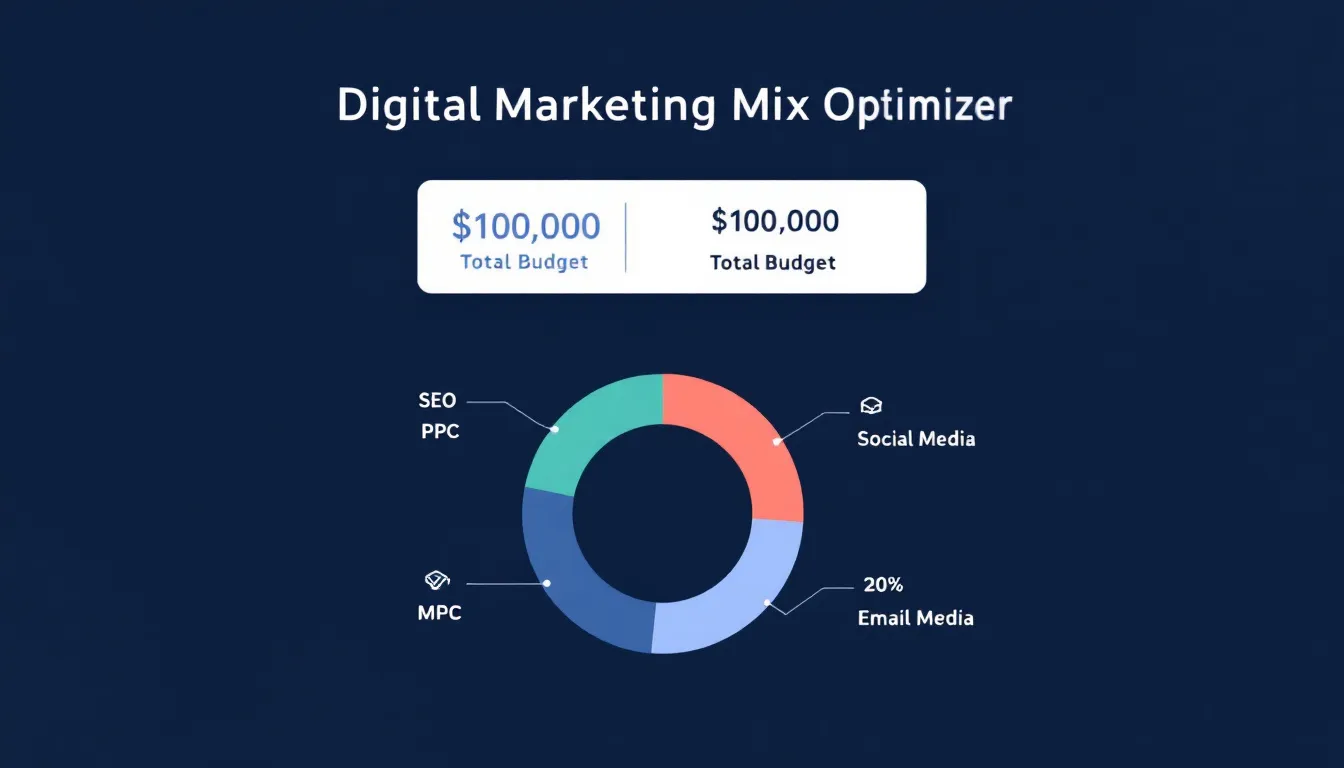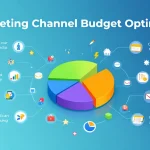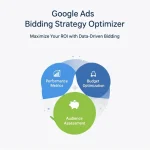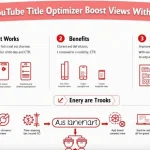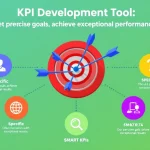Digital Marketing Mix Optimizer
Is this tool helpful?
How to Use the Digital Marketing Mix Optimizer Effectively
The Digital Marketing Mix Optimizer helps you distribute your marketing budget across various digital channels to boost your campaign’s effectiveness. Follow these clear steps to get accurate recommendations tailored to your unique situation.
1. Enter Your Total Marketing Budget
Input the full amount you plan to invest in digital marketing. This figure represents your entire available budget. For example:
- $85,000 for a mid-sized campaign
- $150,000 for a quarterly marketing push
2. List Your Marketing Channels
Type in the digital marketing channels you want to evaluate, separated by commas. Examples include:
- Email Marketing, Affiliate Marketing, Paid Search, Influencer Marketing
- Display Ads, SEO, Native Advertising, Video Marketing
3. Input Performance Metrics for Each Channel
Provide performance details for each channel in the format: Channel: Conversion Rate, CPA, ROI. Two sample inputs would be:
- Email Marketing: 4% conversion rate, $50 CPA, 220% ROI
- Video Marketing: 3% conversion rate, $90 CPA, 175% ROI
Include metrics like conversion rates (percentage of visitors who convert), cost per acquisition (CPA) in dollars, and return on investment (ROI) as a percentage.
4. Define Your Business Objectives (Optional)
If you have specific goals or KPIs, enter them here to fine-tune optimization. For example:
- Increase newsletter subscriptions by 30%
- Boost product demo requests by 40%
5. Set the Campaign Time Frame (Optional)
Specify how long your marketing campaign or optimization period runs. Examples include:
- Two quarters (Q2 & Q3 2024)
- Monthly campaign for May 2024
6. Submit and Review Your Results
Click the optimize button to process your data. The tool analyzes your inputs and displays a budget allocation across your channels designed to maximize ROI and help achieve your objectives.
Understanding the Digital Marketing Mix Optimizer
This optimizer uses your marketing data to recommend the best way to distribute your budget across multiple digital channels. It reduces guesswork by analyzing channel performance, so you allocate resources where they drive the most value.
Purpose and Benefits
- Optimize your marketing budget to generate a higher return on investment.
- Identify which digital channels perform best based on your input data.
- Make data-backed decisions instead of estimating manually.
- Save time and effort by automating budget allocation analysis.
- Align marketing spend with specific business goals for focused growth.
Practical Applications of the Digital Marketing Mix Optimizer
You can use this tool in many scenarios where efficient budget allocation influences marketing outcomes. Typical applications include:
1. E-commerce Growth Strategies
Distribute budgets between paid ads, organic SEO, email campaigns, and social media promotions to maximize online sales and customer acquisition.
2. B2B Lead Generation
Allocate funds for content marketing, LinkedIn ads, webinars, and targeted search ads to boost high-quality lead capture.
3. Local Business Marketing
Focus your budget on local SEO, social media ads, and reviews management to increase foot traffic and local online orders efficiently.
How the Digital Marketing Mix Optimizer Works
The tool uses weighted performance metrics such as conversion rates, cost per acquisition, and ROI to allocate your budget across channels strategically. This ensures your money flows to the channels that deliver the best returns.
ROI Calculation
Return on Investment (ROI) measures the profitability of each channel:
$$ ROI (\%) = \frac{\text{Revenue} – \text{Cost}}{\text{Cost}} \times 100 $$Weighted Budget Allocation
The tool calculates the weight of each channel based on its performance metric relative to the total:
$$ Weight_i = \frac{Channel_i \, Metric}{\sum Channel \, Metrics} $$Then, it determines the budget allocation using:
$$ Allocated\, Budget_i = Total\, Budget \times Weight_i $$Expected Revenue from Each Channel
Projected revenue is calculated as:
$$ Expected\, Revenue_i = \frac{Allocated\, Budget_i}{CPA_i} \times Average\, Revenue\, per\, Conversion $$Example Budget Allocation Calculation
Suppose you have a total marketing budget of $120,000 to split among four channels: Influencer Marketing, Paid Search, Affiliate Marketing, and Content Marketing. You enter the following metrics:
- Influencer Marketing: 3.2% conversion rate, $85 CPA, 190% ROI
- Paid Search: 2.9% conversion rate, $70 CPA, 160% ROI
- Affiliate Marketing: 3.5% conversion rate, $65 CPA, 210% ROI
- Content Marketing: 4.1% conversion rate, $55 CPA, 230% ROI
Step 1: Calculate Composite Score for Each Channel
The optimizer applies a weighted formula to score each channel’s performance:
$$ Score = (Conversion\ Rate \times 0.3) + \left(\frac{1}{CPA} \times 0.3\right) + (ROI \times 0.4) $$- Influencer Marketing: ( (0.032 times 0.3) + (1/85 times 0.3) + (1.9 times 0.4) = 0.918 )
- Paid Search: ( (0.029 times 0.3) + (1/70 times 0.3) + (1.6 times 0.4) = 0.768 )
- Affiliate Marketing: ( (0.035 times 0.3) + (1/65 times 0.3) + (2.1 times 0.4) = 1.027 )
- Content Marketing: ( (0.041 times 0.3) + (1/55 times 0.3) + (2.3 times 0.4) = 1.144 )
Step 2: Calculate Budget Weights
$$ \text{Sum of scores} = 0.918 + 0.768 + 1.027 + 1.144 = 3.857 $$$$ Weight_i = \frac{Score_i}{3.857} $$Step 3: Allocate Budget Based on Weights
- Influencer Marketing: ( 120,000 times frac{0.918}{3.857} approx 28,568 )
- Paid Search: ( 120,000 times frac{0.768}{3.857} approx 23,896 )
- Affiliate Marketing: ( 120,000 times frac{1.027}{3.857} approx 31,947 )
- Content Marketing: ( 120,000 times frac{1.144}{3.857} approx 35,589 )
This distribution maximizes your budget’s impact based on channel performance.
Benefits of Using the Digital Marketing Mix Optimizer
- Data-driven marketing budget allocation replaces guesswork with analytics.
- Improved return on investment through strategic channel investment.
- Time savings by automating complex calculations and analysis.
- Adaptive to business goals and campaign time frames.
- Clear budget justification when presenting plans to stakeholders.
Addressing Common Marketing Challenges
Overcome Overwhelming Choices
With many digital marketing channels, deciding where to spend can be confusing. The optimizer streamlines this process through data-backed priorities.
Balance Short- and Long-Term Goals
The tool uses metrics like CPA and ROI to balance immediate results with sustainable growth strategies.
Optimize Small or Limited Budgets
Maximize impact when resources are tight by investing only in the most effective channels.
Align Spending with Business Objectives
Inputting specific goals ensures your marketing budget supports key company priorities.
Important Disclaimer
The calculations, results, and content provided by our tools are not guaranteed to be accurate, complete, or reliable. Users are responsible for verifying and interpreting the results. Our content and tools may contain errors, biases, or inconsistencies. We reserve the right to save inputs and outputs from our tools for the purposes of error debugging, bias identification, and performance improvement. External companies providing AI models used in our tools may also save and process data in accordance with their own policies. By using our tools, you consent to this data collection and processing. We reserve the right to limit the usage of our tools based on current usability factors. By using our tools, you acknowledge that you have read, understood, and agreed to this disclaimer. You accept the inherent risks and limitations associated with the use of our tools and services.
